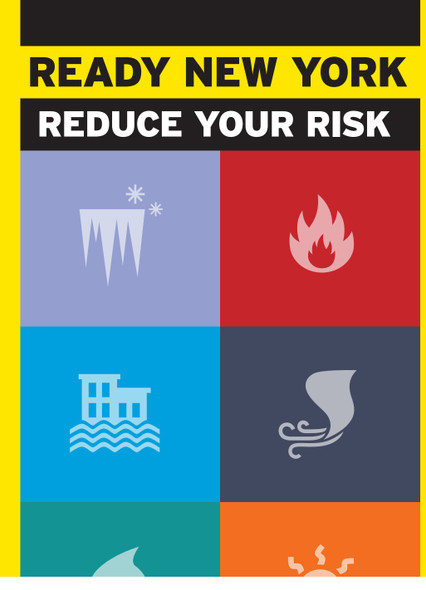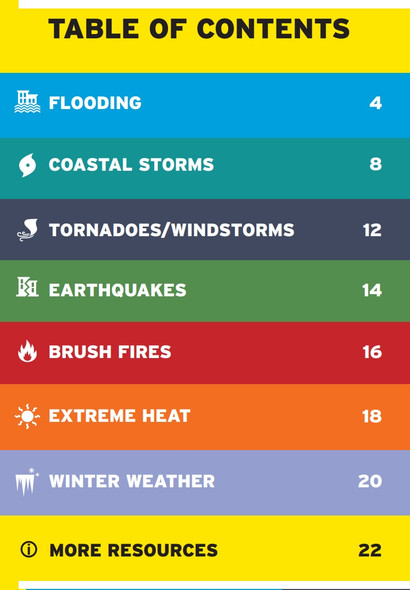- Home
- ** FREE DOWNLOADS HPD **
- Owner's Annual Boiler Inspection Report: Requirements in NYC (pdf file)
hpdsigns.nyc
Owner's Annual Boiler Inspection Report: Requirements in NYC (pdf file)
- SKU:
- Owner's Annual Boiler Inspection Report: Requirements in NYC
- UPC:
- MPN:
- Owner's Annual Boiler Inspection
Description
Owner's Annual Boiler Inspection Report: Requirements in NYC
Overview:
In New York City, maintaining the safety and efficiency of building heating systems is a top priority, especially given the city's dense population and extreme winter temperatures. As part of this effort, the New York City Department of Buildings (DOB) requires the annual inspection of boilers in most buildings, as mandated under Local Law 62 of 1991 and the New York City Building Code. These inspections help ensure that boilers are functioning safely, efficiently, and in compliance with regulations, preventing accidents like boiler explosions or carbon monoxide leaks.
The owner’s annual boiler inspection report is a crucial document that building owners must submit to the DOB to certify that their boilers have been inspected, and any required repairs or corrections have been addressed. Failure to comply with the requirements can result in severe fines and penalties, making it vital for building owners to stay on top of these regulations.
Who Must Comply?
The annual boiler inspection requirements apply to a wide range of properties throughout New York City. Specifically, the following types of properties must undergo annual inspections:
- Residential buildings with six or more dwelling units.
- Mixed-use buildings (those with both residential and commercial spaces).
- Commercial and industrial buildings.
- Institutional buildings such as hospitals and schools.
- Any building with a boiler having more than 100,000 BTUs of heat input.
However, certain small residential buildings, such as one- and two-family homes, are typically exempt from these requirements, as they are not considered high-risk for boiler-related hazards.
Types of Boilers Requiring Inspection:
The annual boiler inspection requirements apply to:
- High-pressure boilers: Boilers that operate above 15 psi (pounds per square inch) and are typically found in industrial or large commercial settings.
- Low-pressure boilers: Boilers that operate at 15 psi or less, commonly found in residential and smaller commercial buildings.
Each of these types of boilers must undergo inspections conducted by qualified professionals, and the results must be documented in the owner's annual boiler inspection report.
When Must Inspections Occur?
Boiler inspections must be conducted annually. The inspection cycle typically starts on January 1st and must be completed by December 31st of the same calendar year. The results of the inspection must then be submitted to the DOB within 45 days of the inspection date.
Building owners are also required to retain copies of all inspection reports for at least three inspection cycles (three years) for potential auditing and future reference.
Boiler Inspection Process:
-
Hire a Qualified Inspector:
- Inspections must be conducted by a qualified professional, such as a licensed Oil Burner Installer, a High-Pressure Boiler Operating Engineer, or an authorized representative of a licensed boiler inspection company. The inspector must have the required certifications and knowledge of NYC’s boiler safety codes.
-
Conduct the Inspection:
- The inspection involves a thorough examination of the boiler and its components, including safety valves, pressure gauges, fuel supply lines, and other critical parts of the system. The goal is to ensure the boiler is functioning properly, is not leaking, and does not pose any safety risks. The inspector will check for wear and tear, corrosion, or damage, as well as ensuring the boiler is compliant with all applicable building codes.
-
Prepare the Inspection Report:
- Once the inspection is complete, the inspector will prepare a detailed report that outlines the condition of the boiler, any issues identified, and whether repairs or corrective actions are required. If the boiler passes the inspection, the report will indicate that it is safe for continued operation.
-
Submit the Report:
- The building owner or authorized representative must submit the inspection report to the NYC Department of Buildings via the online DOB NOW: Safety Portal. Submissions must include the following:
- Boiler inspection report (BO-9) form, filled out and signed by the licensed inspector.
- Any necessary supporting documentation (such as repair records or corrective action documentation, if needed).
- The filing fee, which is typically between $30 and $50 per boiler, depending on the type and size of the boiler.
Submission of the report must be done within 45 days after the date of the inspection.
- The building owner or authorized representative must submit the inspection report to the NYC Department of Buildings via the online DOB NOW: Safety Portal. Submissions must include the following:
Violations and Penalties for Non-Compliance:
Failure to comply with NYC’s annual boiler inspection requirements can lead to significant fines and penalties. The Department of Buildings takes non-compliance seriously due to the potential risks posed by faulty or uninspected boilers.
Penalties include:
- Failure to file an annual boiler inspection report: A fine of $1,000 per boiler.
- Failure to conduct the required inspection: A fine of $1,000 per boiler.
- Operating a boiler without a valid inspection certificate: Fines of up to $5,000 per boiler and may result in the issuance of a violation, which could lead to further penalties or legal action if not corrected.
Additionally, unresolved violations may result in the suspension of the building’s Certificate of Occupancy or other DOB enforcement actions.
Corrective Action and Re-Inspection:
If a boiler is found to be deficient or poses a safety hazard during the inspection, the building owner is responsible for taking corrective actions. Common issues that may require repairs include:
- Leaks in the system.
- Improper venting of combustion gases.
- Malfunctioning safety valves or pressure controls.
- Corrosion or structural damage to the boiler.
Once repairs are completed, a re-inspection may be necessary to ensure that the boiler meets safety standards. The re-inspection results should also be filed with the DOB as part of the owner’s record of compliance.
Additional Considerations:
-
Boiler Insurance Requirements: Building owners may also be required by their insurance companies to conduct regular boiler maintenance and inspections to maintain coverage. In some cases, insurance providers will require proof of compliance with the NYC boiler inspection regulations.
-
Boiler Tagging: Once a boiler has passed its annual inspection, a certificate or inspection sticker should be displayed on or near the boiler to indicate that it has been properly inspected and is safe for operation.
-
Low Pressure vs. High Pressure Boilers: Depending on the type of boiler, different requirements and inspection protocols may apply. Building owners should ensure they understand the classification of their boiler and the relevant requirements.
Conclusion:
The owner's annual boiler inspection report is a critical part of building maintenance in New York City, ensuring the safety and efficiency of boiler systems across residential, commercial, and institutional properties. By adhering to the inspection schedule, hiring qualified professionals, and filing reports on time, building owners can avoid costly penalties and contribute to the safety of their tenants and the surrounding community.
Regular inspections not only help prevent accidents but also ensure that boilers operate efficiently, reducing energy costs and minimizing environmental impact. Given the high stakes, building owners must prioritize compliance with NYC's boiler inspection regulations and stay informed about any updates to local laws and building codes.
Legal Disclaimer
Business Representation We are a small, family-owned and operated business based in Brooklyn, New York. Please note that we are not affiliated with, sponsored by, or connected to the City of New York or any of its agencies. The website, products, services, and any hyperlinks found on our website are not endorsed by, approved by the City of New York or any of its agencies, including but not limited to the New York City Department of Housing Preservation and Development (HPD), Department of Buildings (DOB), Department of Transportation (DOT), Department of Sanitation (DSNY), and the Fire Department of New York (FDNY). We are also not affiliated with any federal, state, or local government agencies in any way.
Disclaimer of Legal Accuracy and Timeliness The information, codes, and due dates provided on this website or any related documentation may not be the most up-to-date version. Laws, regulations, and requirements may change, and the information here may not reflect the most current version. It is the user’s responsibility to verify the accuracy, completeness, and adequacy of the information contained on this site or any information linked to government sites. We do not guarantee or warrant the accuracy of the information presented, and we encourage you to check with official sources, such as state or federal agencies, for the most current information.
User Responsibility for Compliance Please note that legal requirements can vary based on your location and intended use of the products or services. It is solely the responsibility of the customer or user to ensure that they are in compliance with all applicable state, federal, local, and municipal laws and regulations. We make no warranty or representation regarding the suitability or sufficiency of the information provided on this website, including its use in compliance with any law.
No Legal or Professional Advice The information provided on this website and in any related materials is intended for general informational purposes only. It should not be interpreted as legal advice, professional advice, or a statement of law. For specific legal guidance or advice regarding your situation, we recommend consulting with a qualified attorney or other professional.
For more detailed information, please refer directly to the applicable laws and regulations for your state, city, and municipality.
Related Products


Bed Bug Annual Report Requirement (pdf file)
hpdsigns.nyc

BEDBUG ANNUAL REPORTS FREQUENTLY ASKED QUESTIONS (pdf file)
hpdsigns.nyc


Bedbug Annual Report Form (pdf file v10/2023)
hpdsigns.nyc

2025-NYC Fire Department Checklist for Building Owners (pdf file)
hpdsigns.nyc


OWNER REDUCE YOUR RISK - NYC (pdf)
hpdsigns.nyc






